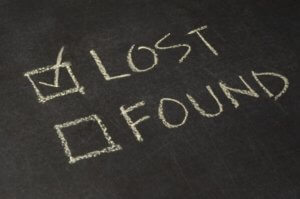A LOST TALE: "LIVING IN THE PRESENT"
Carlos M. Sera, MBA
September 1, 2015
 When I was a little boy I had a baseball glove that I loved. It was my favorite and my only. I would summarily dismiss the notion of playing with anything other than my prized possession. I would take it out every day and work the pocket. I would oil it and keep it safe from the elements. One morning I go to my baseball bag and the glove’s not there. I quickly become frantic and start looking for it throughout the house. It is nowhere to be found. I ask my mom if she has seen it, then my brother. I am out of luck. I then back-track my activities until the last time I absolutely know I had the glove which was in the final inning of the game the night before. I walk back to the field and still no glove. I am desperate. I go home and start calling my teammates to see if they picked it up by accident, still no luck. Afterwards I call my coach and ask him if he can possibly get me the name of the coach of the team we played the night before so that I can show up at their next practice to see if one of them took it by accident. I do this and once again, I am out of luck.
When I was a little boy I had a baseball glove that I loved. It was my favorite and my only. I would summarily dismiss the notion of playing with anything other than my prized possession. I would take it out every day and work the pocket. I would oil it and keep it safe from the elements. One morning I go to my baseball bag and the glove’s not there. I quickly become frantic and start looking for it throughout the house. It is nowhere to be found. I ask my mom if she has seen it, then my brother. I am out of luck. I then back-track my activities until the last time I absolutely know I had the glove which was in the final inning of the game the night before. I walk back to the field and still no glove. I am desperate. I go home and start calling my teammates to see if they picked it up by accident, still no luck. Afterwards I call my coach and ask him if he can possibly get me the name of the coach of the team we played the night before so that I can show up at their next practice to see if one of them took it by accident. I do this and once again, I am out of luck.
I spend the next few weeks thinking of only one thing and everywhere I went my eyes would gravitate to where I might find my glove. At the next practice I borrow a glove from my buddy because if I go out and buy a new one I feel I am mentally abandoning the search for my trusty companion. I played shortstop at the time and soon the first ground ball comes my way and to my surprise I field it cleanly and make the throw to first base. I repeat this over the course of practice and soon I am playing just as well with my borrowed glove as my favorite but still lost glove.
By now many can relate to my obsession with my lost baseball glove. After this incident I resolved to behave differently the next time I lost an item since even at a young age I understood that it was counter-productive. The first step to curing my obsession was to look up the word “lost “in the dictionary. In the dictionary it said that lost meant “no longer in your possession or control; unable to be found or recovered.” It seemed like an adequate definition but not for my purpose or cure. It was imprecise. I have always been fascinated by the concept of time and in this case it was no different. I reasoned that “lost” had to have an element of time or else in my case or the case of the obsessed it could mean “still searching” or “not yet found.” This state of “still searching” could last forever if left uncontrolled. Right then and there I decided that when I “lost” something I would instead declare it “missing.” I would give myself a time frame, in my case it is 15 minutes, to search for the object and at the end of the time frame I would officially declare it “lost” and no longer “missing.” I would stop searching at the end of 15 minutes and take the necessary steps to live my life without this object. At a later date if I found it then it became “found.” It served my purpose and I liked my new found independence form the tyranny of “lost.”
So how does this relate to investing? It is especially relevant in a time such as this, the fall of 2008. The only thing that people have on their minds is how much money they have “lost.” The question then is the same as for my lost baseball glove. How long will people dwell searching for their “lost” money before they take the necessary steps to live their life without this money?
Let’s backtrack for a moment and compare investing to fishing. Using words again, let’s examine the word “fishing.” There is a reason it’s not called “catching.” If every time a person went fishing they caught a fish it would be called “catching” instead. Investing is the same way. If every time you “invested” you “made money” it would be called “making money.” It’s not. Just like the word fishing implies there will be periods where you don’t catch fish, the word investing implies there will be periods where you don’t make money. This period of not making money is called “losing” money. Like my baseball glove you must recognize that you have to limit the amount of time that you can dwell on your money losing. Declare the money “missing” and then concentrate on your next move. My Zen friends would call this “living in the present.” My golfing friends would say “concentrate on your next shot because you can’t change your last shot.”
To those that are still searching for their “missing” money I suggest you declare it “lost” and focus on the future. Focus on how are you going to take advantage of the next bull market? Focus on your situation. If you have lost more than you can recover, focus on how you are going to resolve the problem. Focus on what you will do today.
Let me make one last point. Focusing on today does not mean altering your investment philosophy. It means executing it. If you don’t have a philosophy that takes into consideration extreme periods then you don’t have a philosophy that works. I am not today nor have I ever been a proponent of the “Philosophy of the day.” When I read magazines or articles that say things like “3 ways to make money today” or “How to cope in today’s environment” I want to call the author and explain the grave injustice they are doing to their readers. To be a successful investor you must take the bad with the good and develop an approach that works in every market environment. Accept that fishing isn’t called “catching” and that investing has its dark moments. How you react to these dark moments is what separates those with a plan or philosophy from those that will be forever “searching.”
Categories
Strategize Your Success

